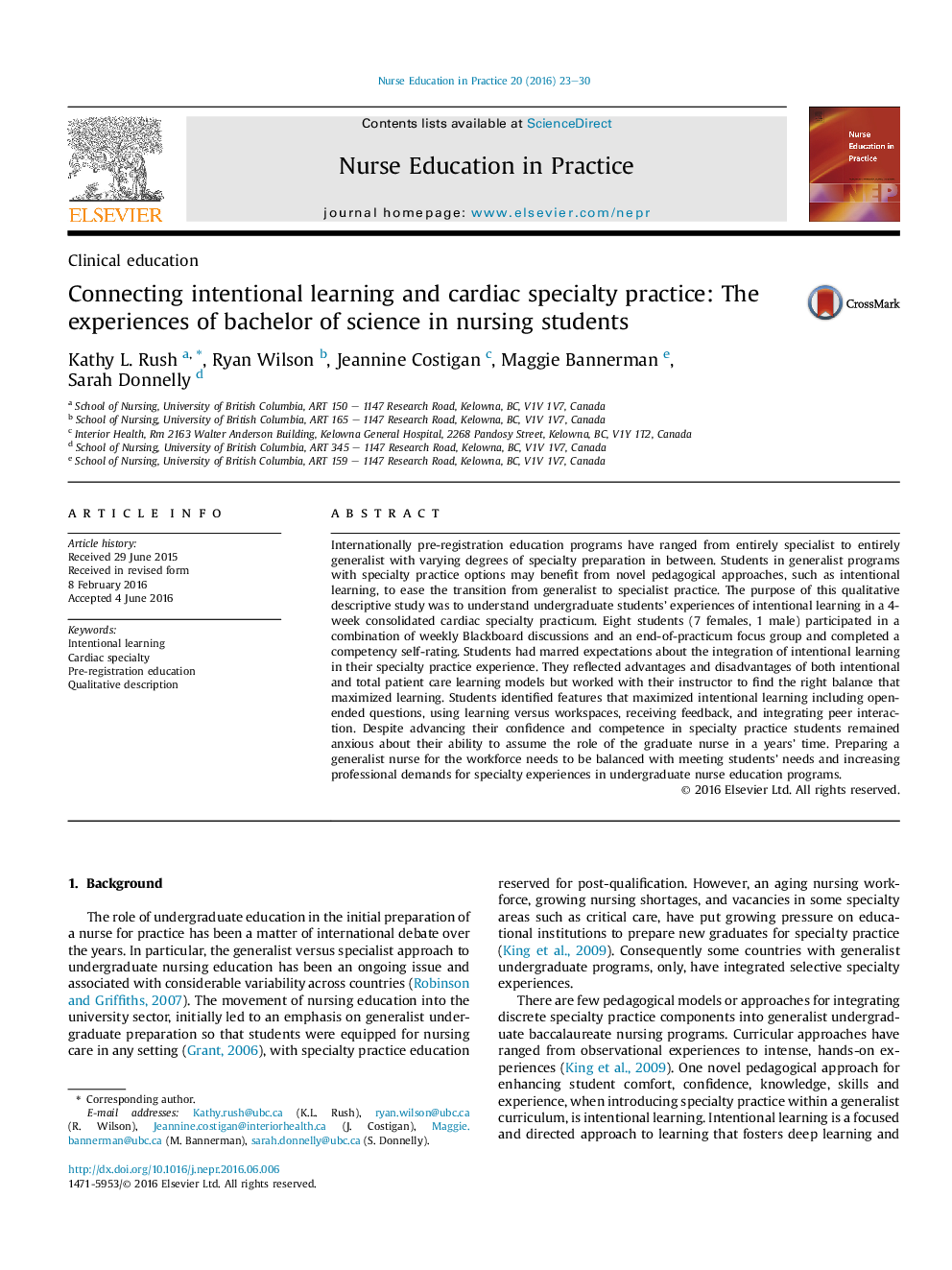| Article ID | Journal | Published Year | Pages | File Type |
|---|---|---|---|---|
| 366624 | Nurse Education in Practice | 2016 | 8 Pages |
•We examined an intentional learning model in a specialty setting.•Students valued intentional learning activities to deepen critical thinking and learning.•Balancing learning activities with patient care opportunities improved the experience.•Prompt feedback, peer interaction and open-ended questions were important intentional learning characteristics.•Students gained confidence in cardiac competencies.
Internationally pre-registration education programs have ranged from entirely specialist to entirely generalist with varying degrees of specialty preparation in between. Students in generalist programs with specialty practice options may benefit from novel pedagogical approaches, such as intentional learning, to ease the transition from generalist to specialist practice. The purpose of this qualitative descriptive study was to understand undergraduate students’ experiences of intentional learning in a 4-week consolidated cardiac specialty practicum. Eight students (7 females, 1 male) participated in a combination of weekly Blackboard discussions and an end-of-practicum focus group and completed a competency self-rating. Students had marred expectations about the integration of intentional learning in their specialty practice experience. They reflected advantages and disadvantages of both intentional and total patient care learning models but worked with their instructor to find the right balance that maximized learning. Students identified features that maximized intentional learning including open-ended questions, using learning versus workspaces, receiving feedback, and integrating peer interaction. Despite advancing their confidence and competence in specialty practice students remained anxious about their ability to assume the role of the graduate nurse in a years’ time. Preparing a generalist nurse for the workforce needs to be balanced with meeting students’ needs and increasing professional demands for specialty experiences in undergraduate nurse education programs.
